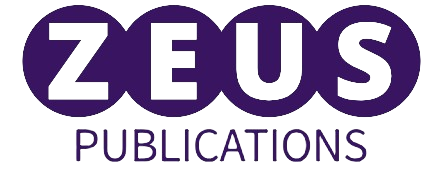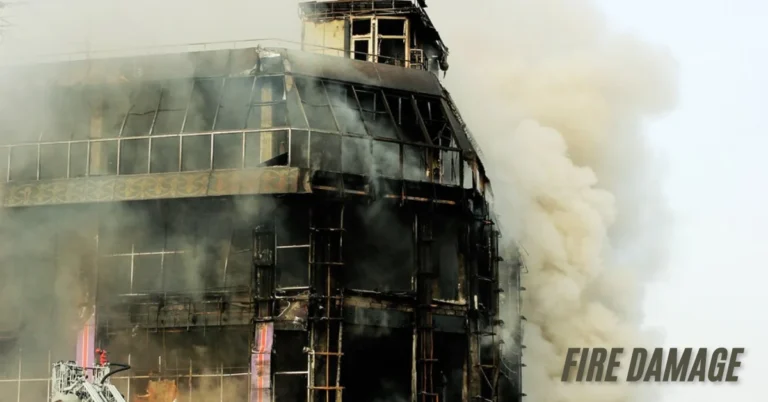Introduction to Fire Damage Claims
Fire damage can be one of the most devastating losses a property owner can experience. The aftermath is not just about charred walls and ruined belongings; it often brings a wave of confusion regarding liability and insurance claims. Understanding how fire damage claims work is crucial for anyone looking to recover from such an unfortunate event.
What causes these fires? Who’s responsible when things go wrong? And what does your insurance really cover? These are just some questions that haunt victims in the wake of destruction. No one wants to navigate this complex landscape alone, especially when emotions run high after a loss.
This guide aims to shed light on the intricacies of fire damage claims, helping you grasp essential concepts from common causes to your rights as a policyholder. Whether you’re dealing with lingering smoke or flickering embers in your mind, let’s take this journey together toward understanding and reclaiming what’s rightfully yours.
Common Causes of Fire Damage
Fire damage can stem from various sources, each posing unique risks.
One of the most common causes is electrical malfunctions. Faulty wiring or overloaded circuits often ignite fires unexpectedly. Regular inspections can help prevent these incidents.
Cooking accidents are another significant contributor to fire damage. Unattended stoves or ovens can quickly turn a meal into disaster. Staying vigilant while cooking is essential for safety.
Heating equipment also plays a role. Space heaters and fireplaces, if not maintained properly, may lead to uncontrolled flames spreading throughout a home.
Additionally, smoking materials left unattended remain a prevalent issue in residential fires. Disposing of cigarettes safely and using ashtrays helps mitigate this risk.
Arson is an unfortunate cause that affects many communities, leading to devastating losses for families and businesses alike. Understanding these causes empowers property owners to take proactive measures against fire hazards.
Types of Liability in Fire Damage Claims
When dealing with fire damage claims, understanding the types of liability is crucial. Liability can arise from various sources, including negligence and strict liability.
Negligence occurs when a party fails to act responsibly, leading to fire incidents. For example, a property owner might neglect proper maintenance of electrical systems. This oversight could result in devastating fires that affect others.
Strict liability differs; it applies regardless of intent or negligence. If a manufacturing defect in a product causes a fire, the manufacturer may be held responsible without needing proof of fault.
Landlord-tenant relationships introduce another layer. Landlords are often liable for maintaining safe living conditions. A failure to address known hazards can lead to significant repercussions if tenants suffer damages due to fires.
Each case requires careful examination of circumstances surrounding the incident and potential liabilities involved.
Understanding Insurance Coverage for Fire Damage
Understanding insurance coverage for fire damage is crucial. Not all policies are the same, and knowing what yours includes can save you time and stress later on.
Typically, homeowners’ insurance covers damages caused by fire, but it may depend on specific circumstances. For instance, if the fire resulted from negligence or an illegal activity, your claim might be denied.
It’s essential to review your policy details carefully. Look for exclusions related to certain types of fires or particular areas in your home.
Additionally, keep track of any personal belongings that were lost or damaged in the blaze. Most policies have a limit on personal property claims.
Consider additional coverage options too. Some homeowners opt for riders or endorsements tailored specifically to cover high-value items affected by fire damage. Knowing these nuances can empower you when dealing with insurers after a loss.
Steps to Take After a Fire Loss
Experiencing a fire loss can be overwhelming. Staying calm is essential in this chaotic situation.
First, ensure everyone’s safety. Evacuate the premises and call emergency services to handle any remaining danger.
Once it’s safe, document everything. Take photos of the damage and list your belongings that were affected. This will support your claim later on.
Next, contact your insurance provider as soon as possible. Report the incident and inquire about coverage details related to fire damage.
Secure temporary housing if needed. Your well-being matters amid recovery efforts.
Begin organizing records like receipts for repairs or replacements you may need to make later on. Keeping thorough documentation aids in smoothing out claims processing down the line.
By taking these steps methodically, you’re setting a strong foundation for handling what comes next after such an unfortunate event.
Hiring a Public Adjuster for Fire Damage Claims
Navigating a fire damage claim can feel overwhelming. Hiring a public adjuster may ease some of that stress. These professionals specialize in assessing property damage and negotiating with insurance companies on your behalf.
Public adjusters understand the complexities of fire damage claims. They know what to look for, ensuring you don’t miss out on any potential compensation. With their expertise, they can help maximize your settlement.
They also act as advocates during the claims process. This is particularly valuable when disputes arise between policyholders and insurers. Their experience allows them to handle negotiations effectively.
Choosing the right public adjuster is crucial. Look for someone licensed and reputable in your area who has specific experience with fire-related claims. A good fit can make all the difference in how your case unfolds and ultimately resolves.
Conclusion: Importance of Understanding Liability in Fire Damage Claims
Understanding liability in fire damage claims is crucial for homeowners and business owners alike. Fire incidents can lead to devastating financial losses, so knowing who is responsible can significantly impact the recovery process. Different parties may hold varying degrees of liability depending on the cause of the fire.
By comprehensively assessing your situation, you empower yourself to navigate through the complexities of filing a claim effectively. This knowledge helps ensure that you receive fair compensation and protects your interests during negotiations with insurance companies or other involved parties.
Being informed about potential liabilities means being better prepared when disaster strikes. It enables you to take proactive steps toward securing your property and protecting your assets from future risks related to fire damage.
FAQs
Q: Who is liable for fire damage in a rental property?
Ans: Liability typically falls on the tenant if negligence caused the fire, but landlords are responsible for structural repairs.
Q: Can my fire damage claim be denied?
Ans: Yes, claims can be denied if there’s insufficient evidence, policy exclusions, or if liability isn’t clearly established.
Q: What should I do if my fire damage claim is reduced?
Ans: Review the insurer’s reasons, gather additional evidence, and consider appealing the decision or seeking legal advice.
Q: Does homeowners insurance always cover fire damage?
Ans: Most policies cover fire damage, but specific exclusions may apply, such as intentional acts or certain types of negligence.
Q: How can I prove liability for fire damage?
Ans: Documentation, photos, witness statements, and expert assessments can help establish liability for a successful claim.

